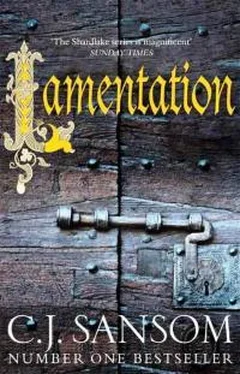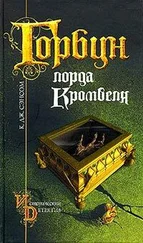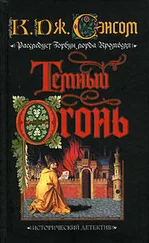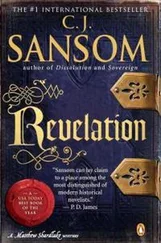IT WAS PAST SIX when I returned home. My friend Guy was due for dinner at seven – a late meal, but like me he worked a long day. As usual, Martin had heard me enter and was waiting in the hall to take my robe and cap. I decided to go into the garden to enjoy a little of the evening air. I had recently had a small pavilion and some chairs set at the end of the garden, where I could sit and look over the flower beds.
The shadows were long, a few bees still buzzing round the hive. Wood pigeons cooed in the trees. I sat back. I realized that during my interview with Isabel Slanning I had not thought at all about the burning; such was the power of her personality. Young Nicholas had asked a clever question about where she would put the picture. Her answer had been further proof that, for Isabel, winning the quarrel mattered more than the picture, however genuine her attachment to it. I thought again of her strange remark at the end, about some terrible things her brother had done. During our interviews she usually liked nothing better than to abuse and belittle Edward, but that sudden spasm of fear had been different.
I pondered whether it might be worthwhile having a quiet word with Philip Coleswyn about our respective clients. But that would be unprofessional. My duty, like his, was to represent my client as strongly as I could.
My mind went back to the horror I had watched that morning. The great stage would have been taken down now, together with the charred stakes. I thought of Coleswyn’s remark that any of us could come to the fate of those four; I wondered whether he himself had dangerous connections among the reformers. And I must get rid of my books before the amnesty expired. I looked towards the house; through the window of my dining room I saw that Martin had lit the beeswax candles in their sconces, and was setting the linen tablecloth with my best silver, meticulously, everything lined up.
I returned to the house and went into the kitchen. There, all was bustle. Timothy was turning a large chicken on the range. Josephine stood at one end of the table, arranging salads on plates in a pleasing design. At the other end, Agnes Brocket was putting the finishing touches to a fine marchpane of almonds and marzipan. They curtsied as I entered. Agnes was a plump woman in her forties, with nutbrown hair under her clean white coif, and a pleasant face. There was sadness there too, though. I knew that the Brockets had a grown son who for some reason they never saw; Martin had mentioned it at his interview, but nothing more.
‘That looks like a dish fit for a feast,’ I said, looking at the marchpane. ‘It must have cost you much labour.’
Agnes smiled. ‘I take pleasure in producing a fine dish, sir, as a sculptor may in perfecting a statue.’
‘The fruits of his labours last longer. But perhaps yours bring more pleasure.’
‘Thank you, sir,’ she replied. Agnes appreciated compliments. ‘Josephine helped, didn’t you, dear?’ Josephine nodded, giving me her nervous smile. I looked at her. Her cruel rogue of a father had been my previous steward, and when I had – literally – booted him out of the house a year before, Josephine had stayed with me. Her father had terrified and intimidated her for years, but with him gone she had gradually become less shy and frightened. She had begun to take care of her appearance, too; her unbound blonde hair had a clear lustre, and her face had rounded out, making her a pretty young woman. Following my look, Agnes smiled again.
‘Josephine is looking forward to Sunday,’ she said archly.
‘Oh? And why is that?’
‘A little bird tells me that after church she will be walking out again with young Master Brown, that works in one of the Lincoln’s Inn households.’
I looked at Josephine. ‘Which one?’
‘That of Master Henning,’ Josephine said, reddening. ‘He lives in chambers.’
‘Good, good. I know Master Henning, he is a fine lawyer.’ I turned back to Agnes. ‘I must go and wash before my guest comes.’ Though goodhearted, Agnes could be a little tactless, and I did not want Josephine embarrassed further. But I was pleased; it was more than time Josephine had a young man.
As I left the kitchen, Martin returned. He bowed. ‘The table is set, sir.’
‘Good. Thank you.’ Just for a second I caught Josephine glance at him with a look of dislike. I had noticed it once or twice before, and been puzzled by it, for Martin had always seemed a good master to the lower servants.
GUY ARRIVED shortly after seven. My old friend was a physician, a Benedictine monk before the Dissolution of the Monasteries. He was of Moorish stock; past sixty now, his dark features lined and his curly hair white. As he entered I noticed he was developing the stoop that tall men sometimes do in their later years. He looked tired. A few months ago I had suggested that perhaps it was time for him to think of retiring, but he had replied that he was still quite fit, and besides, he would not know what to do with himself.
In the dining room we washed our hands at the ewer, put our napkins over our shoulders, and sat down. Guy looked admiringly over the table. ‘Your silver has a merry gleam in the candlelight,’ he said. ‘Everything in your house looks well these days.’
Martin knocked at the door and came in, setting out the dishes of salad, with herbs and slices of fresh salmon from the Thames. When he had gone I said to Guy, ‘You are right, he and Agnes were a find. His old employer gave him a good reference. But, you know, I am never at ease with him. He has such an impenetrable reserve.’
Guy smiled sadly. ‘I remember when I was at the monastery at Malton, we had a steward such as that. But he was a fine fellow. Just brought up to believe he must never be presumptuous with his superiors.’
‘How are things at St Bartholomew’s?’ I asked. The old hospital, one of the few for the poor in London, had been closed when the King dissolved the monasteries, but a few volunteers had reopened it, to provide at least some service. Guy was one of the volunteers there. I recalled guiltily that when my friend Roger Elliard had died three years ago I promised his widow to continue his work to open a new hospital. But then the war came, everyone suffering from the taxes and fall in the value of money, which had continued ever since, and no one was willing to donate.
He spread his hands. ‘One does what one can, though Jesu knows it is little enough. There is talk of the city authorities taking it over, with a grant of money from the King, but nothing ever seems to happen.’
‘I see more driven into poverty in the city every day.’
‘Poverty and illness both.’
We were silent a moment. Then, to raise our mood, I said, ‘I have some good news. Tamasin is pregnant again. The baby is due in January.’
He smiled broadly, a flash of good white teeth. ‘Thanks be to God. Tell her I shall be delighted to attend her during her pregnancy again.’
‘We are both invited to a celebration on George’s first birthday. The twenty-seventh.’
‘I shall be glad to go.’ He looked at me. ‘A week on Tuesday. And this coming Monday will be –’ he hesitated ‘– the anniversary of …’
‘The day the Mary Rose went down. When all those men died, and I so nearly with them.’ I lowered my head, shook it sadly. ‘It seems a peace treaty has been signed. At last.’
‘Yes. They say the King will get to keep Boulogne, or what is left of it, for ten years.’
‘Not much to show for all the lives lost, or the ruination of the coinage to pay for it.’
‘I know,’ Guy agreed. ‘But what of you? Do you ever get that feeling of the ground shifting beneath you, that you had after the ship went down?’
Читать дальше








![К Сэнсом - Стенание [другой перевод]](/books/432043/k-sensom-stenanie-drugoj-perevod-thumb.webp)
